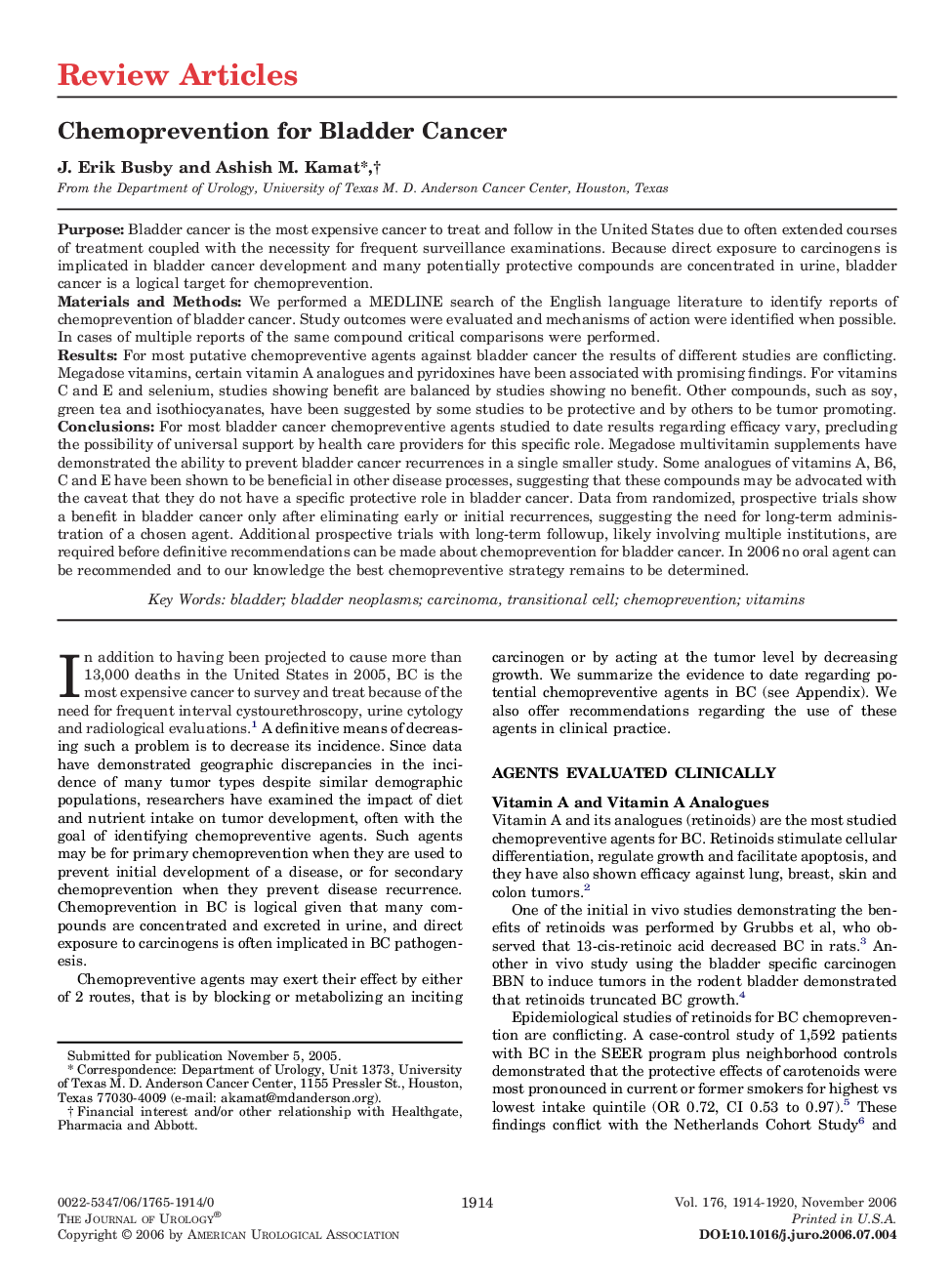| Article ID | Journal | Published Year | Pages | File Type |
|---|---|---|---|---|
| 3875923 | The Journal of Urology | 2006 | 7 Pages |
Abstract
For most bladder cancer chemopreventive agents studied to date results regarding efficacy vary, precluding the possibility of universal support by health care providers for this specific role. Megadose multivitamin supplements have demonstrated the ability to prevent bladder cancer recurrences in a single smaller study. Some analogues of vitamins A, B6, C and E have been shown to be beneficial in other disease processes, suggesting that these compounds may be advocated with the caveat that they do not have a specific protective role in bladder cancer. Data from randomized, prospective trials show a benefit in bladder cancer only after eliminating early or initial recurrences, suggesting the need for long-term administration of a chosen agent. Additional prospective trials with long-term followup, likely involving multiple institutions, are required before definitive recommendations can be made about chemoprevention for bladder cancer. In 2006 no oral agent can be recommended and to our knowledge the best chemopreventive strategy remains to be determined.
Keywords
N-butyl-N-(4-hydroxybutyl)nitrosamineCOXTURATBCcpsDFMORDANSAIDBCGα-DifluoromethylornithineHPRTCCBacillus Calmette-GuérinN-(4-Hydroxyphenyl)retinamidecyclooxygenaseVeterans AdministrationLinoleic acidrecommended daily allowanceNonsteroidal anti-inflammatory drugsTransurethral resectionBladder cancerSEERTransitional cellBBNBladderBladder neoplasmsSurveillance, Epidemiology, and End ResultsVitaminsChemopreventionTransitional cell carcinomaCarcinoma
Related Topics
Health Sciences
Medicine and Dentistry
Nephrology
Authors
J. Erik Busby, Ashish M. Kamat,
